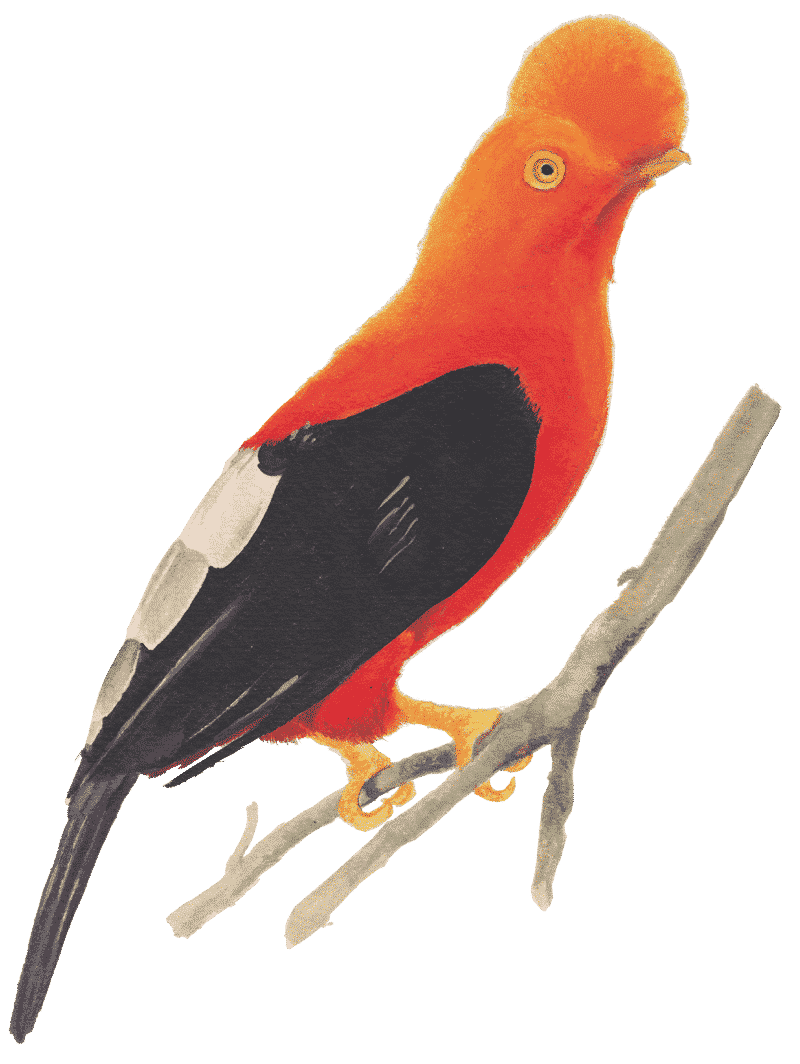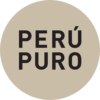PEOPLE AND NATURE IN THE URUBAMBA VALLEY - PERU
OUR VALUES
ECOLOGICAL, SOCIAL, HIGHEST QUALITY
For us, ecology and social issues are inseparable. People depend on biodiversity and ecosystem services, whether they live in a large German city or in a Peruvian village. Rainforests protect our climate, insects pollinate crops, microorganisms generate fertile soils. All of this is central to our survival – no matter where we live or what we do.
We believe that smallholders who protect these rainforests, biodiversity and ecosystem services should be compensated accordingly. In doing so, the highest social standards and working at eye level are of utmost importance to us and our partners.
However, our customers should not only enjoy with a good social and ecological conscience, but also – with all their senses – enjoy the exceptionally high quality of our products.
BAVARIAN TELEVISION
PERÚ PURO
IN A NUTSHELL
BETTER THAN ORGANIC
AGROFORESTRY SYSTEMS
Our smallholders have learned to establish species-rich agroforestry systems on degraded land that protect biodiversity, climate and soils. Depending on the region, our Chuncho vintage cocoa or Tipica coffee now grows under up to 70 native shade tree species. Because a variety of other crops are also grown here, this ecological land use not only ensures the long-term well-being of families, but also provides a habitat for numerous species of wild animals and plants.
Most of the world’s cocoa and coffee grows in unshaded monocultures, for which rainforest had to give way through slash-and-burn agriculture. The monotonous plantations provide habitats for only a few animal and plant species, and favor outbreaks of pests and diseases. In addition, the sensitive soils are depleted by the one-sided use. That’s why monocultures often use massive amounts of pesticides and artificial fertilizers. Nevertheless, after a few years the yields decrease. As a result, new rainforest areas are often cleared to establish new plantations. Through further destructive slash-and-burn.
However, it is also possible to grow cocoa and coffee in a profitable way that protects the rainforest. In agroforestry systems, the layer principle of the rainforest is replicated on the cultivated land. Cocoa or coffee grows in the shade of a variety of native tree species. Nitrogen-fixing ground cover plants protect against erosion, drought aerate and fertilize the soil, keep the soil moist, and provide habitat for many animals. Agroforestry systems can thus serve as a species-rich, protective buffer for pristine rainforest areas. In these “cocoa or coffee gardens” the nutrient cycle is closed, no artificial fertilizers or pesticides are needed. This reduces the financial outlay for smallholder families. In addition to cocoa and coffee, a variety of other fruits, spices and vegetables can be harvested on the same land, and sustainable forestry can be practiced. Families that operate agroforestry systems can be almost completely self-sufficient from their own farms. In the long term, the yields of cocoa and coffee are even higher than those of intensively managed monocultures. Since the beginning of our project, over 90 hectares of pantages and degraded land have been converted into sustainable agroforestry systems at the cocoa farms alone, and a total of over 200,000 native trees have been planted and nurtured.
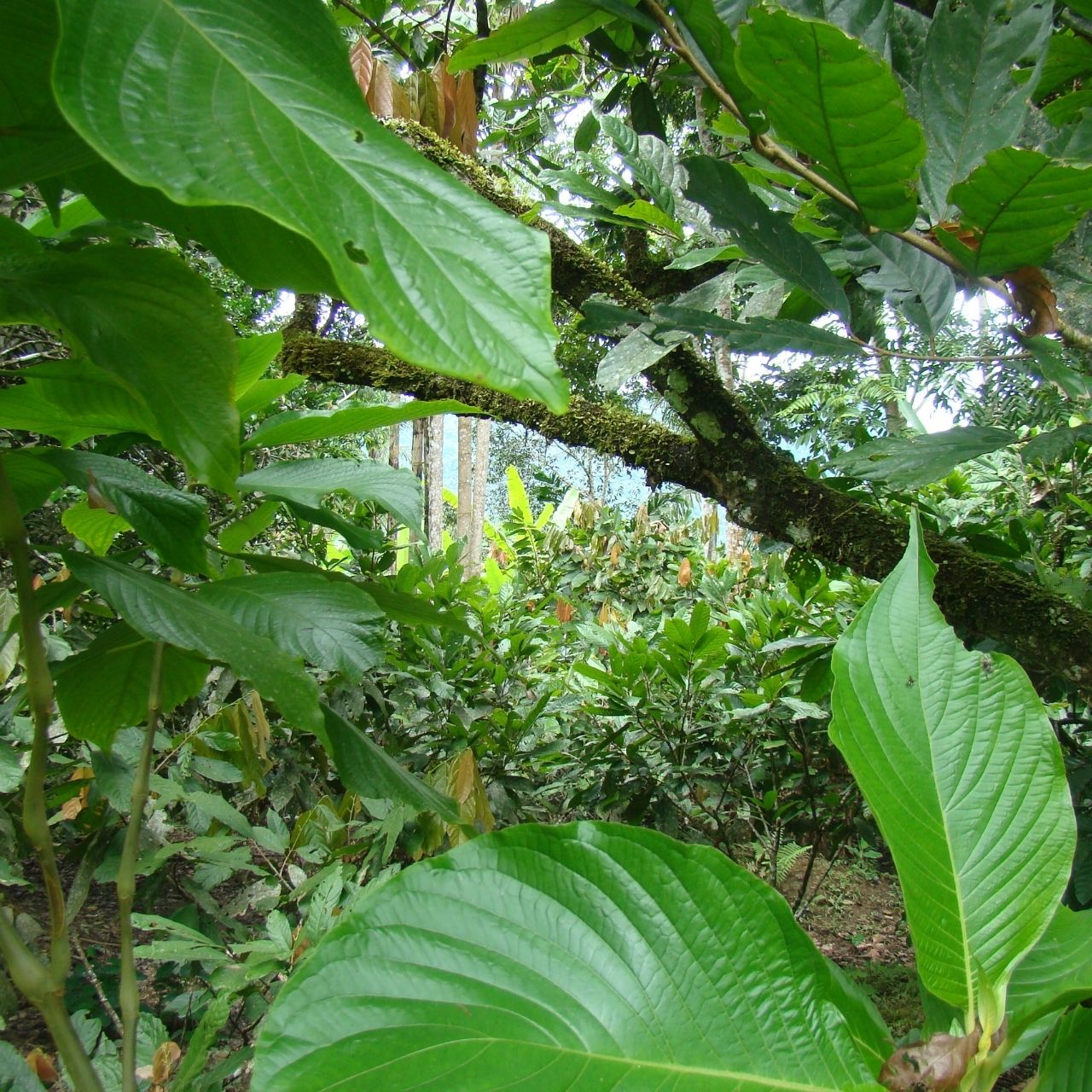
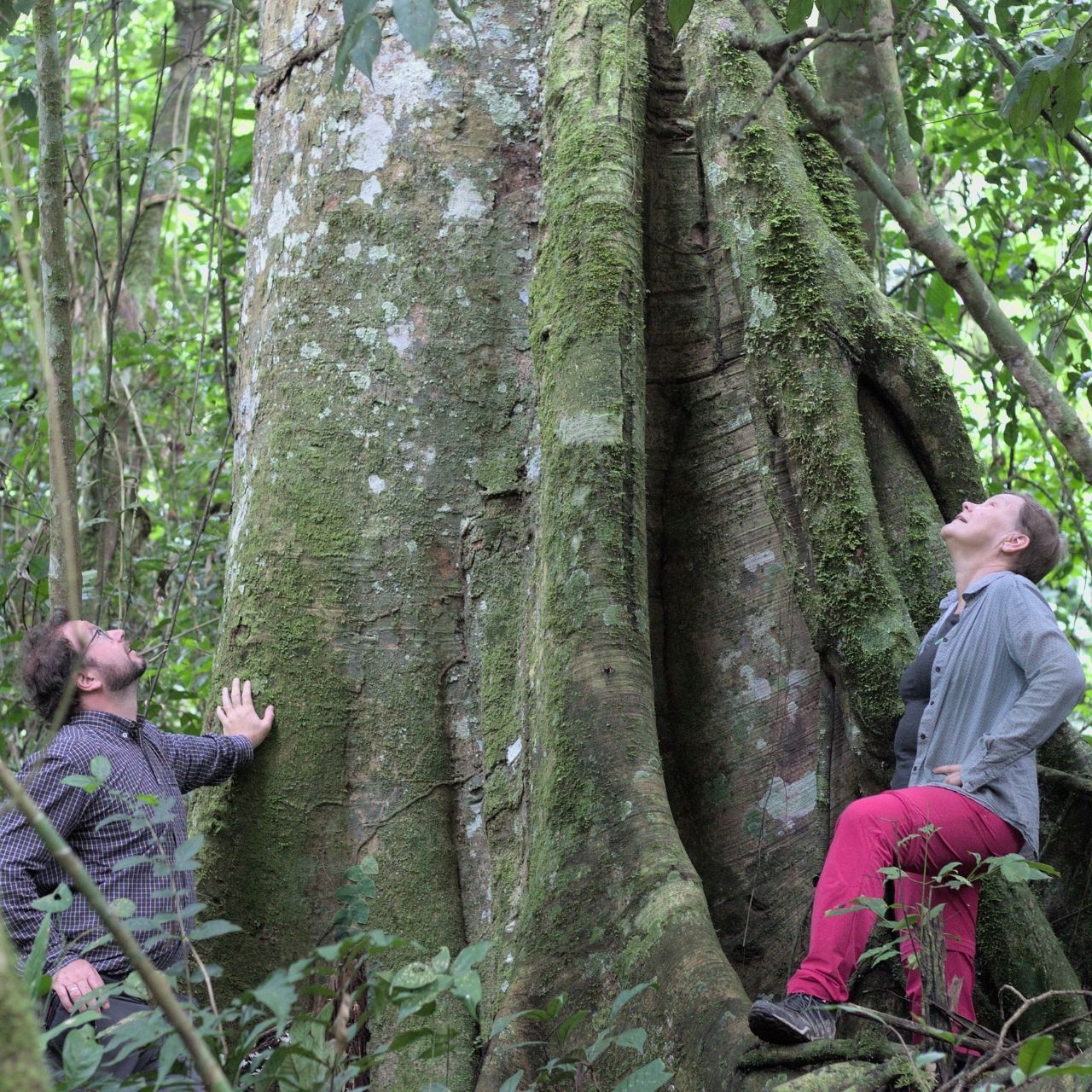
LET NATURE BE NATURE
RAINFOREST CONSERVATION
Rainforests are the lungs of our earth. The diversity of its fauna and flora is unique. They are idea generator, life insurance, wild pharmacy and multifaceted service provider. All these services they provide completely free of charge. Nevertheless, they are under immense pressure worldwide. Good solutions are needed to preserve them: our cocoa and coffee farmers protect their own rainforest, and our Brazil nut collectors preserve large, intact areas of rainforest through sustainable use.
The Urubamba Valley on the eastern side of the Andes is one of the biodiversity hotspots and thus one of the most biodiverse regions on earth. There has been forest here continuously for over 20,000 years. All our partners contribute directly to the protection of the Peruvian rainforests. From the lowland rainforest where Brazil nuts are collected, to the cocoa plantations at 500 to 1,000 meters above sea level, to coffee cultivation in the mountain rainforest at over 1,800 meters above sea level. Because we are not only a reliable trading partner, but also invest heavily in education, we have been able to create a new understanding of the importance of these rainforests in our cooperatives. Together with the very high income generated by us, this has created real “game changers” in our partner regions in Peru. We founders of PERÚ PURO are tropical ecologists and have completely focused the company on the preservation of these unique and precious ecosystems. The smallholder families who grow our cocoa and coffee have learned how to farm sustainably on the same land over the long term in this sensitive system.
We are proud to make an important contribution to the conservation of significant forests by protecting over 1,000 hectares of primary rainforest.
FROM CULTIVATION TO ENJOYMENT
THE TRANSPARENT WAY
We not only keep an eye on the entire value chain of our Brazil nuts, cocoa and coffee, but are directly involved in every single step. We accompany our cocoa from the planting of the cocoa trees to the packaging of the chocolate, our coffee from the coffee cherry to the cup and our Brazil nuts from the rainforest to you.
Every year we visit the farms of our cocoa and coffee farmers in the Urubamba Valley and regularly visit our Brazil nut collectors. We have had a close relationship of trust with our partners in the Urubamba Valley for over 20 years. Since we always work with the same people in the long term, we can also work together with our producers to increase the quality of the Brazil nuts, cocoa and coffee to the maximum and jointly develop every single step of our product processing. We trade directly and without intermediaries. Each bag is transparently traceable to the tree. Our pure cocoa products and Brazil nuts are processed directly in Peru. In this way, the majority of the value added remains on site. For the chocolates, we take our best cocoa beans to a top chocolatier in Switzerland, who produces our CHUNCHO GOLD vintage layer chocolates exclusively for us and according to recipes developed in-house.
We bring the green coffee to a small organic roastery, where our “Urubamba Fino” is always refined fresh in small batches in the traditional drum roaster.
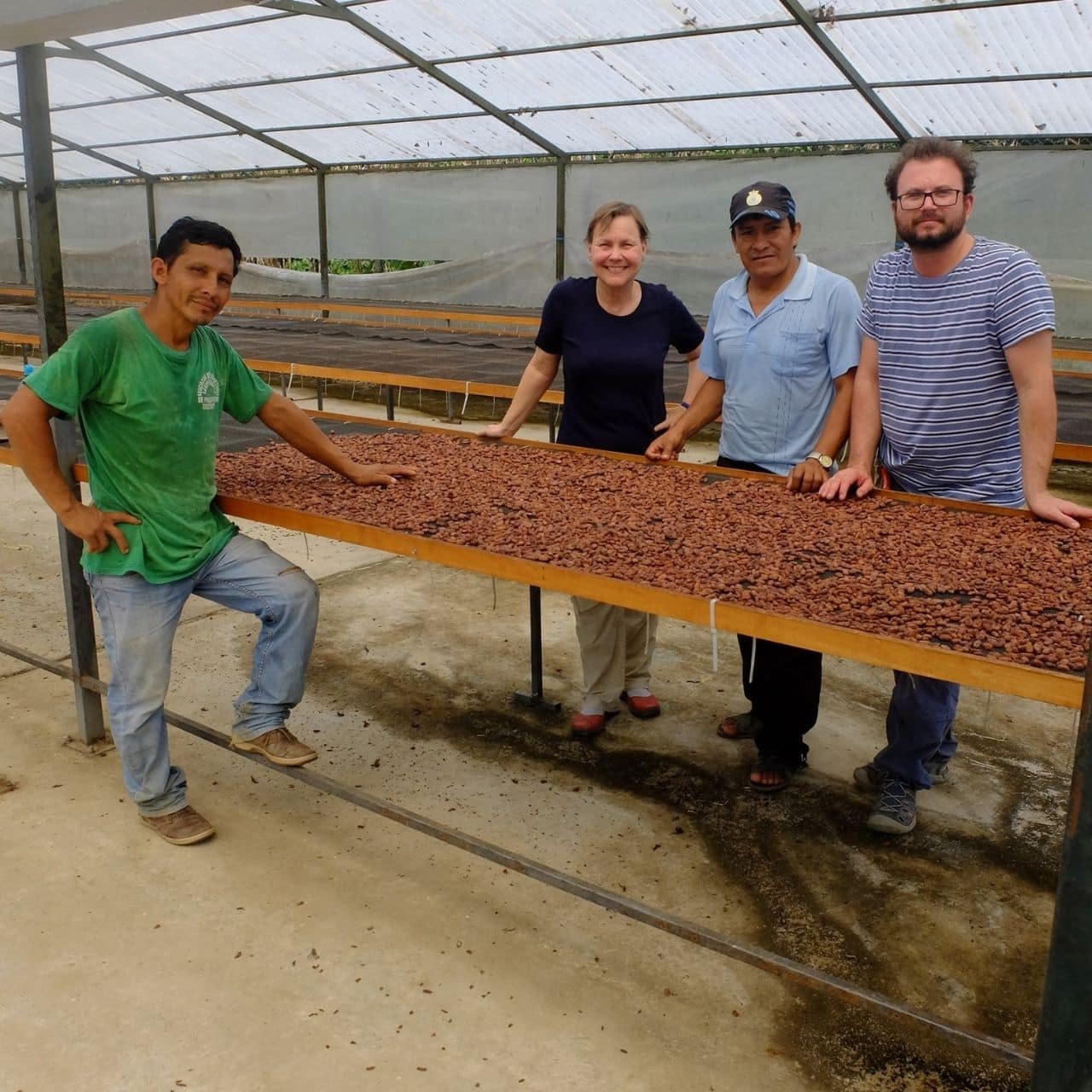
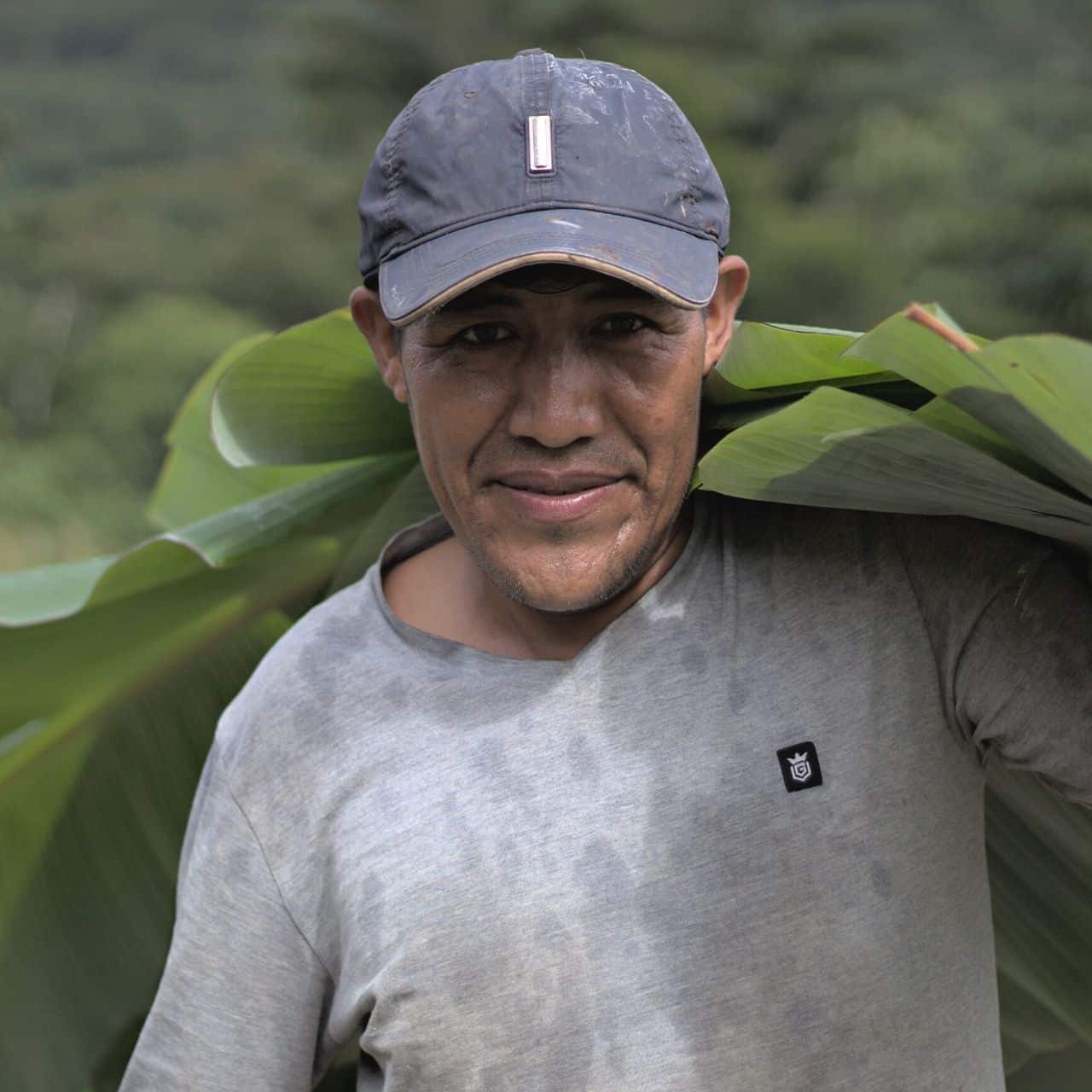
AT EYE HEIGHT
SELF-DETERMINED LIFE
Our farmers own the land they farm themselves, just like their farms and houses. They are independent cocoa and coffee producers. Our Brazil nut collectors:inside receive their rainforest concessions from the state over a period of 40 years. Joining together in democratically organized cooperatives gives all our partners a stronger voice and more bargaining power.
Together with the local cocoa farmers, we have established the APECMU eco-cooperative. Together with our non-profit association “Frederic – Help for Peru” we are constantly developing our projects. We financially support the coffee farming families of the Chaco Huayanay cooperative in planting vegetable gardens and reforestation. We know each of our producer families personally – whether they supply us with cocoa, coffee or Brazil nuts. Together with the cooperatives, we set the prices each year in advance. And this is completely independent of the fluctuating world market price. We pre-finance the harvest interest-free so that the cooperatives do not have to take out agricultural loans and can thus invest more in their own infrastructure and the training of their members. Because we work without middlemen and the raw material quality is so high, we can pay more than double the fair trade organic price. In this way, we create long-term prospects for our producers on site – also for the next generations.
MORE THAN FAIR
VALUE CREATION ON SITE
What can be done sensibly in Peru, we do in Peru. Selection, post-harvest processing and further processing to our pure cocoa products, all steps before roasting the coffee and the processing of the Brazil nuts, happen 100% in Peru. In this way, we leave a large part of the value chain on site, provide education and training, and create local jobs.
In 2020, we were able to start up a small cocoa processing plant in the remote jungle village of Ivochote through our nonprofit NGO. The members of the women’s groups we founded have been trained and are now able to roast, peel, grind and process cocoa down to cocoa paste themselves. Now roasted cocoa beans, cocoa nibs and cocoa liquor are produced directly on site, creating jobs and added value. The products obtained in this way are consumed by the families themselves as their own needs and are additionally offered by the cooperative on the local, regional and international market.
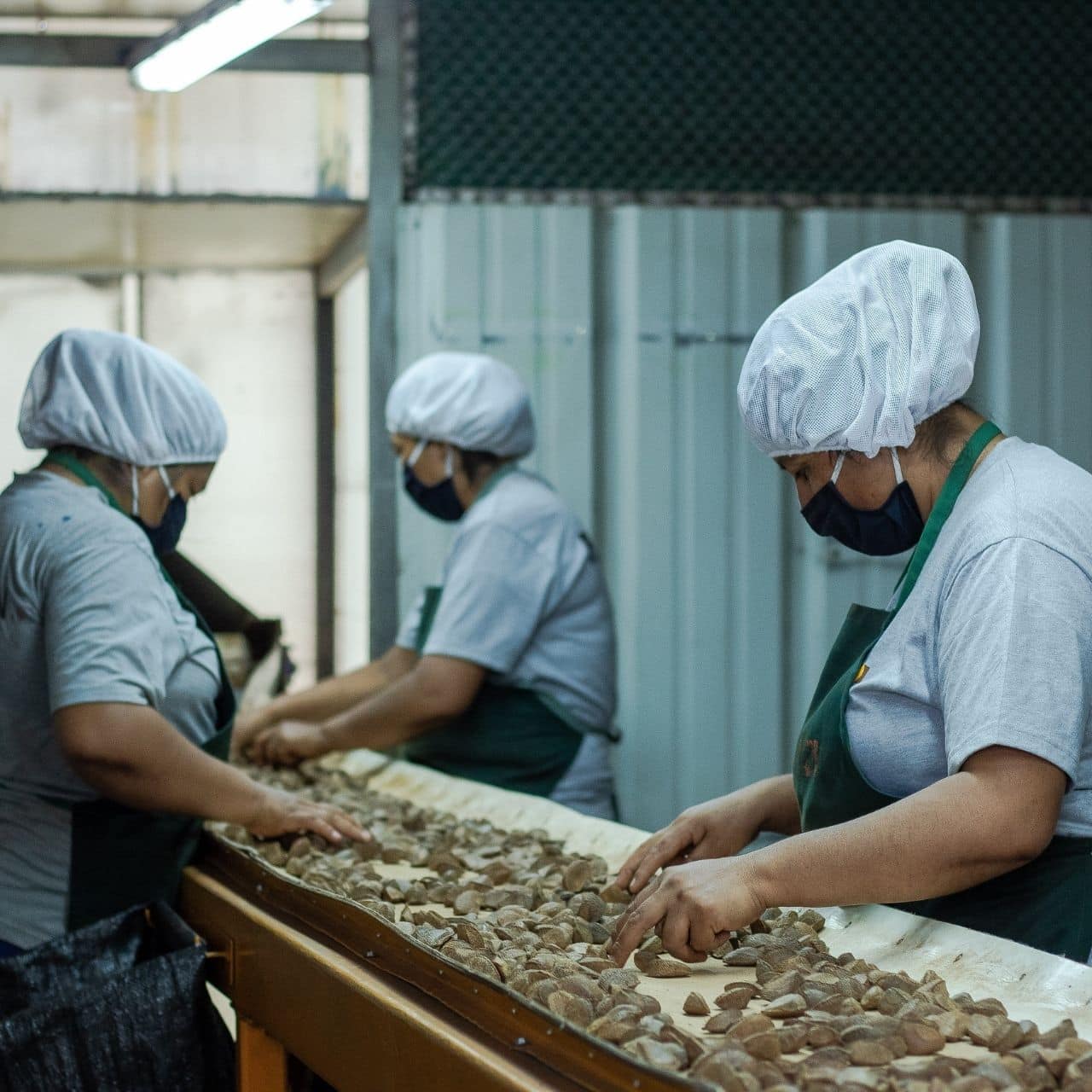
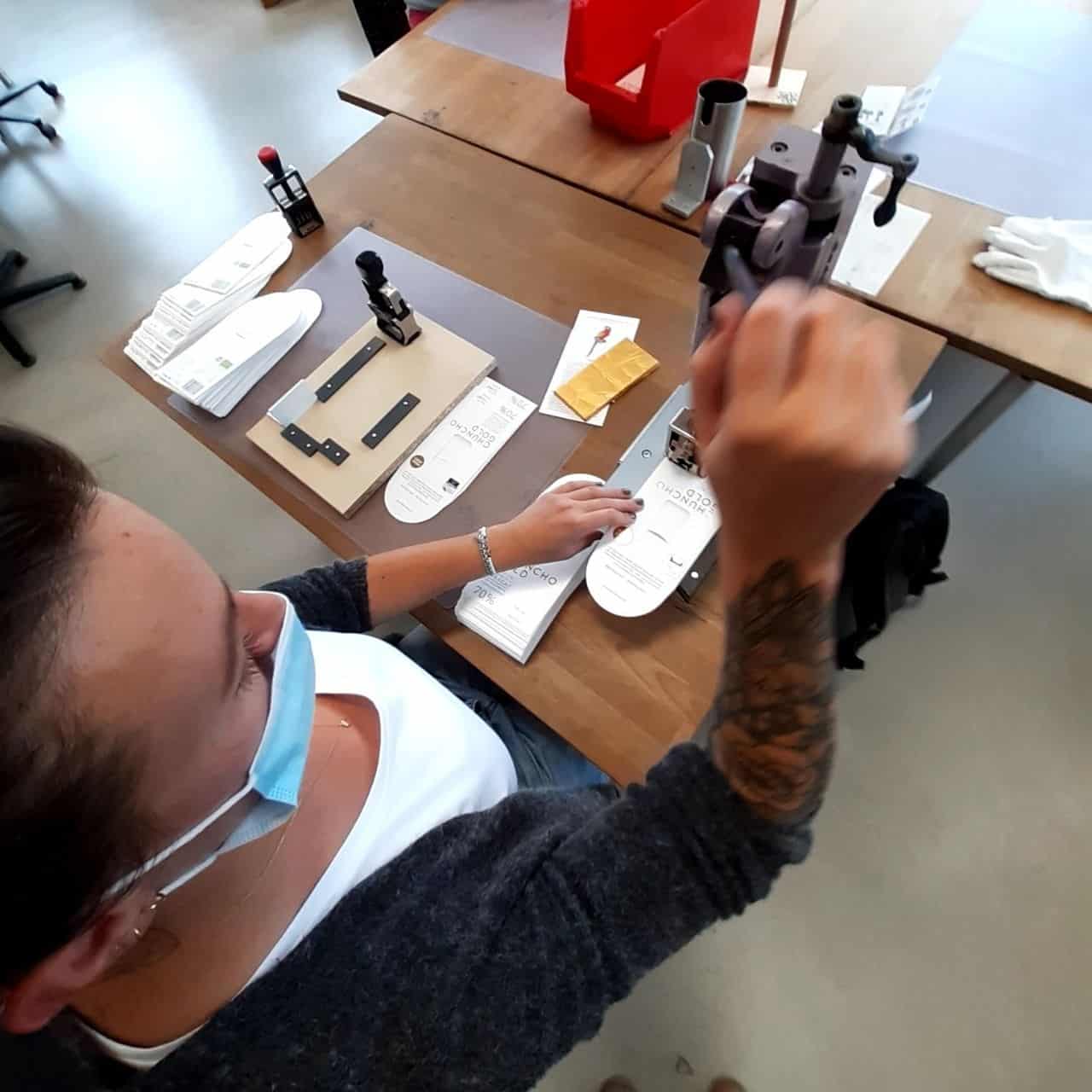
INCLUSION
SOCIALLY PACKAGED
All our products are packed by hand in a Lebenshilfe workshop for people with disabilities. In this way, we bring people who would have difficulty finding a job in the free economy into secure employment. One feedback we get from the workshop: “Working on such a high-quality product is particularly meaningful”.
Cooperation with the workshop for handicapped persons “Lebenshilfe” has been an important concern for us since our founding. For the employees, Lebenshilfe is much, much more than just a place to work. Here, each employee receives individual support and supervision. People with and without disabilities work hand in hand here. And ultimately, things are accomplished here that no machine could ever do. Only this handwork gives our products the great, individual look. That’s worth every penny to us.
HIGHEST QUALITY
MAXIMUM ENJOYMENT
From the very beginning, our top priority – in addition to the special ecological and social requirements – has been to strive for the very highest quality. We know that cocoa, coffee and Brazil nuts are special tropical forest fruits whose refinement deserves the utmost care and attention. We work continuously both in Peru and in Europe to ensure the very highest quality. We owe this to the origin of our products, our partners, our customers and our own standards.
For us, quality assurance begins on the cultivation sites, where the careful handling of soils and plants allows unique raw materials to grow. Cocoa, coffee and Brazil nuts are hand selected and carefully processed and packaged. In every step, the highest quality is our claim. Profit maximization always takes a back seat to our high quality standards.
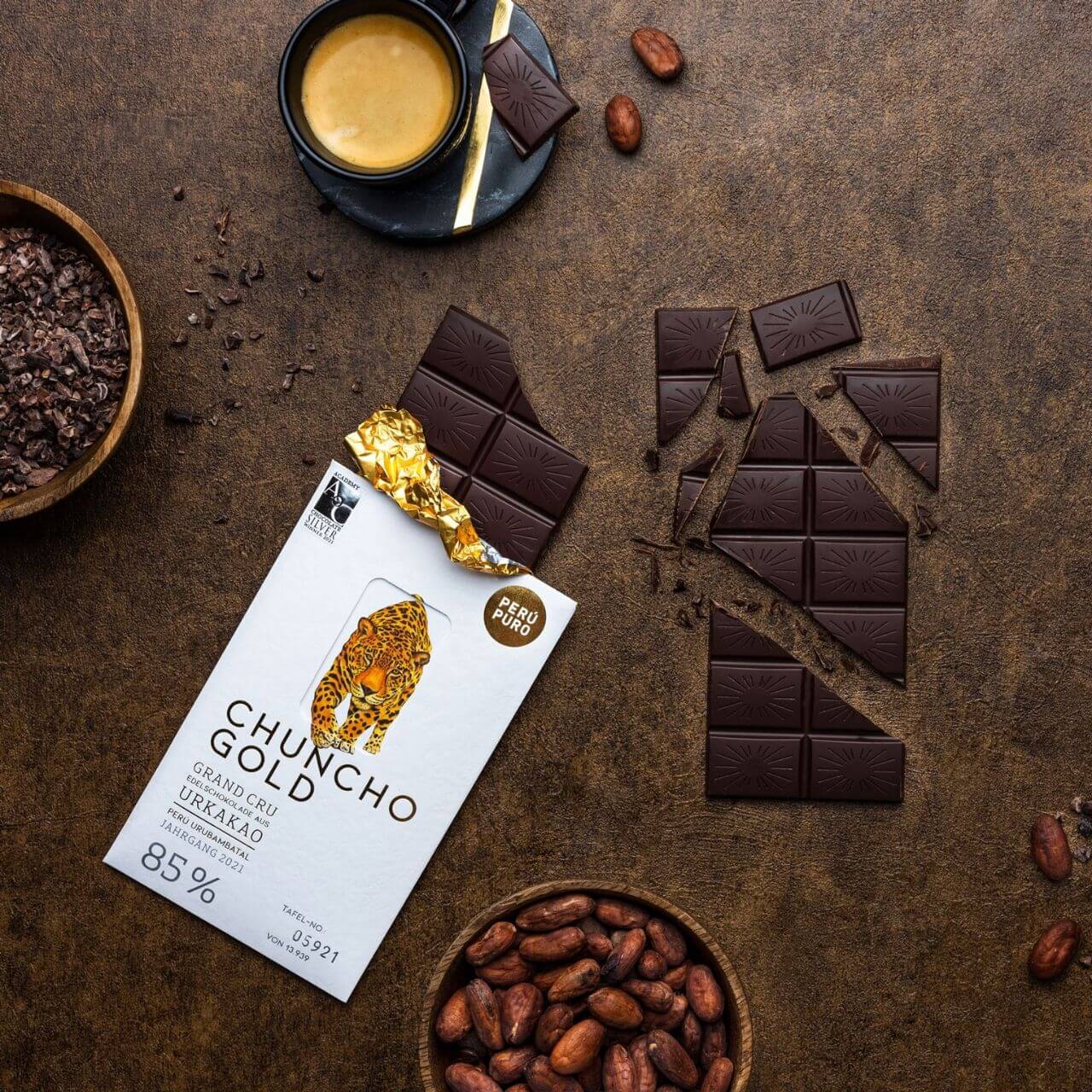
PERÚ PURO
EVERYTHING DIFFERENT!
NON-PROFIT ASSOCIATION
FREDERIC –
HELP FOR PERU
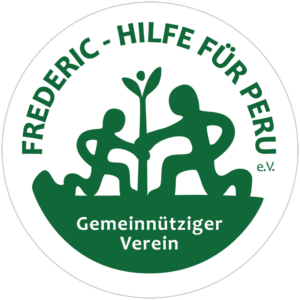
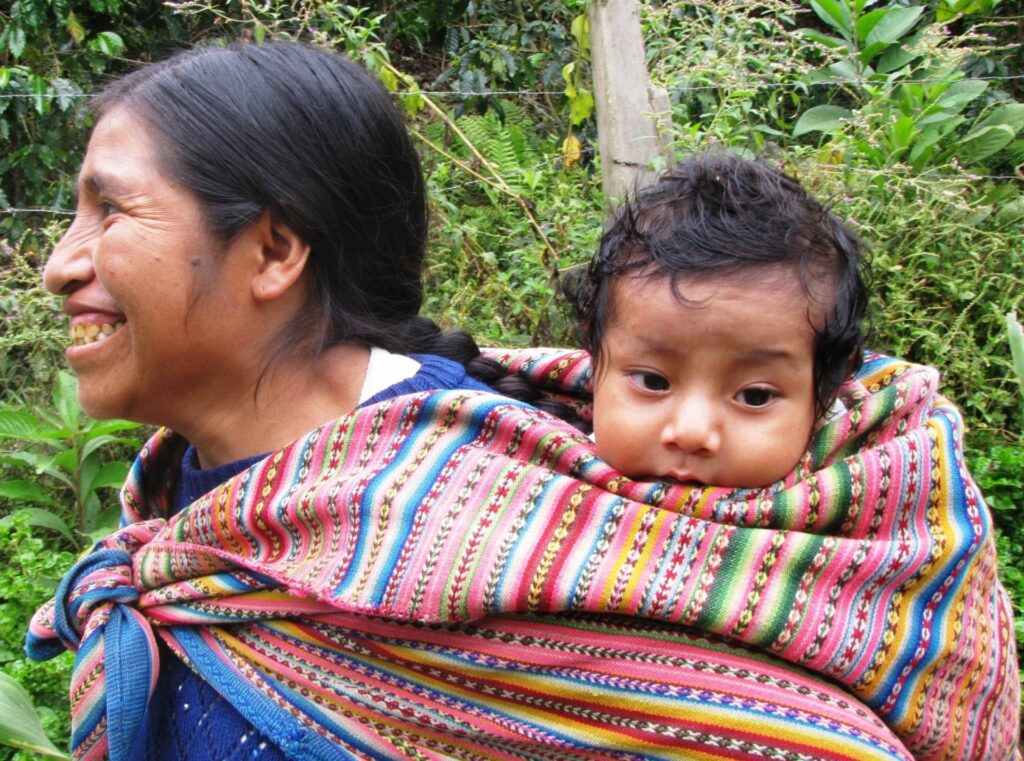
In August 2000, at the age of 20, Frederic Wielgoss was caught in a swirl while bathing in the Urubamba River. He has been missing ever since. Friends of Frederic initiated a fundraising campaign to help his family raise the high cost of the elaborate search effort.
When the search had to be ended without success, the money donated exceeded the amount to be raised. The Wielgoss family decided to use the surplus money to help people in the region. No other aid organization had been active in the remote region until then.
At the end of 2000, the association “Frederic – Help for Peru” was founded.
The association, which is officially recognized as a non-profit organization, has since been supporting people in the region with multifaceted help for self-help.
The association’s areas of work include organic farming, active rainforest protection and reforestation, education, health, use of renewable energy, and the founding and support of women’s groups.
